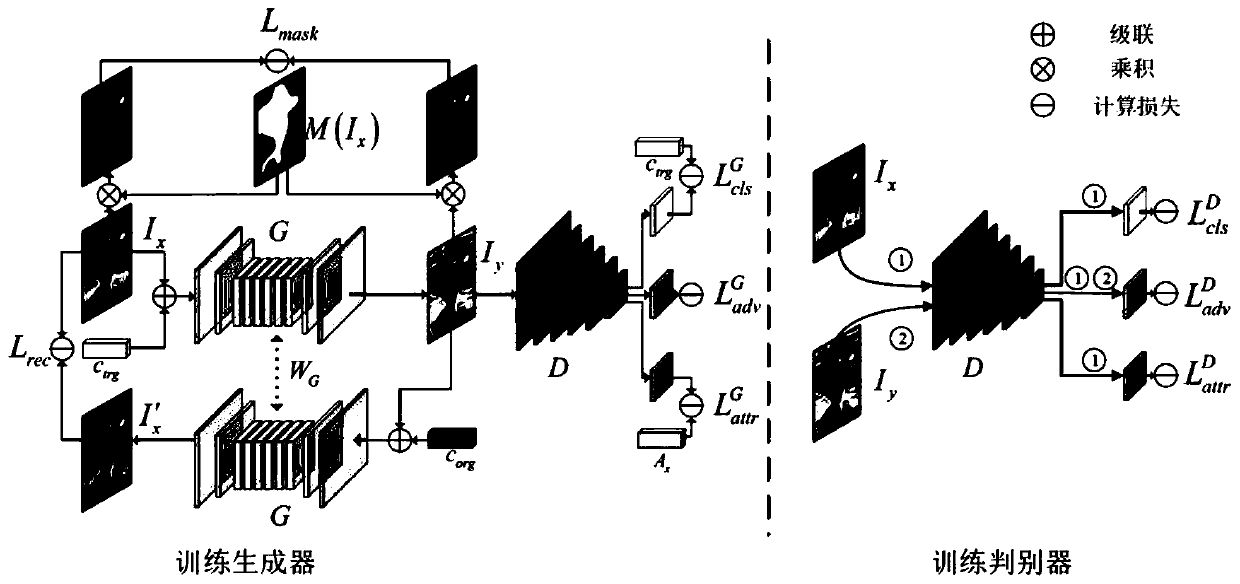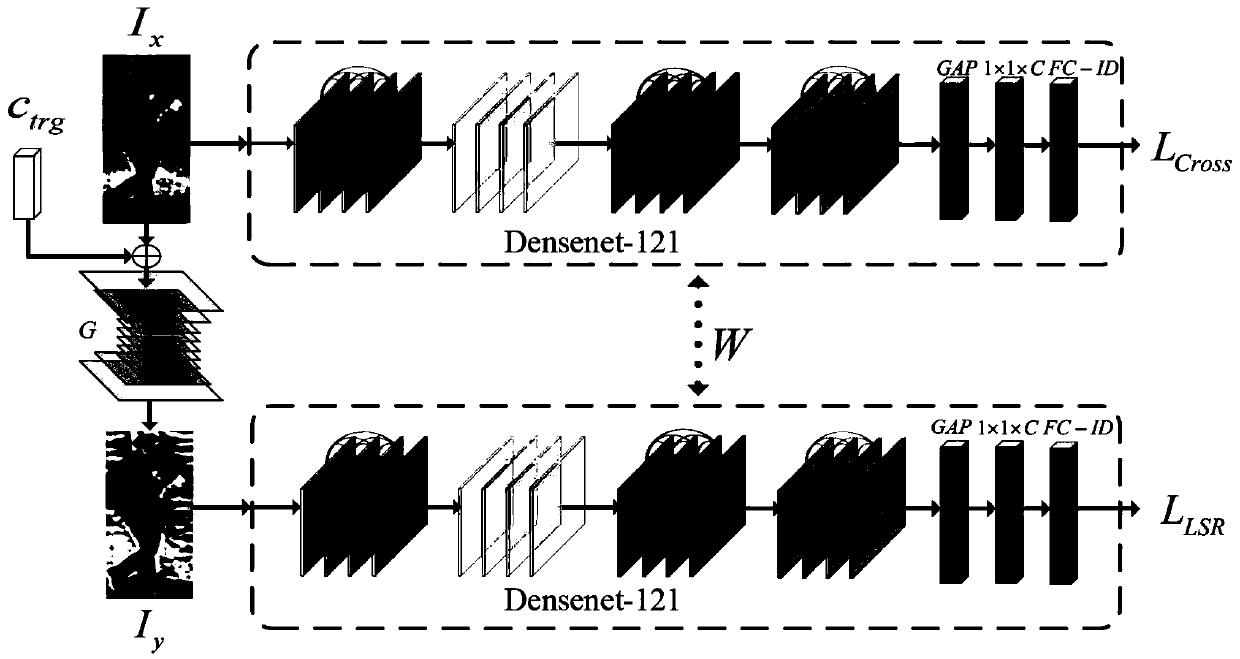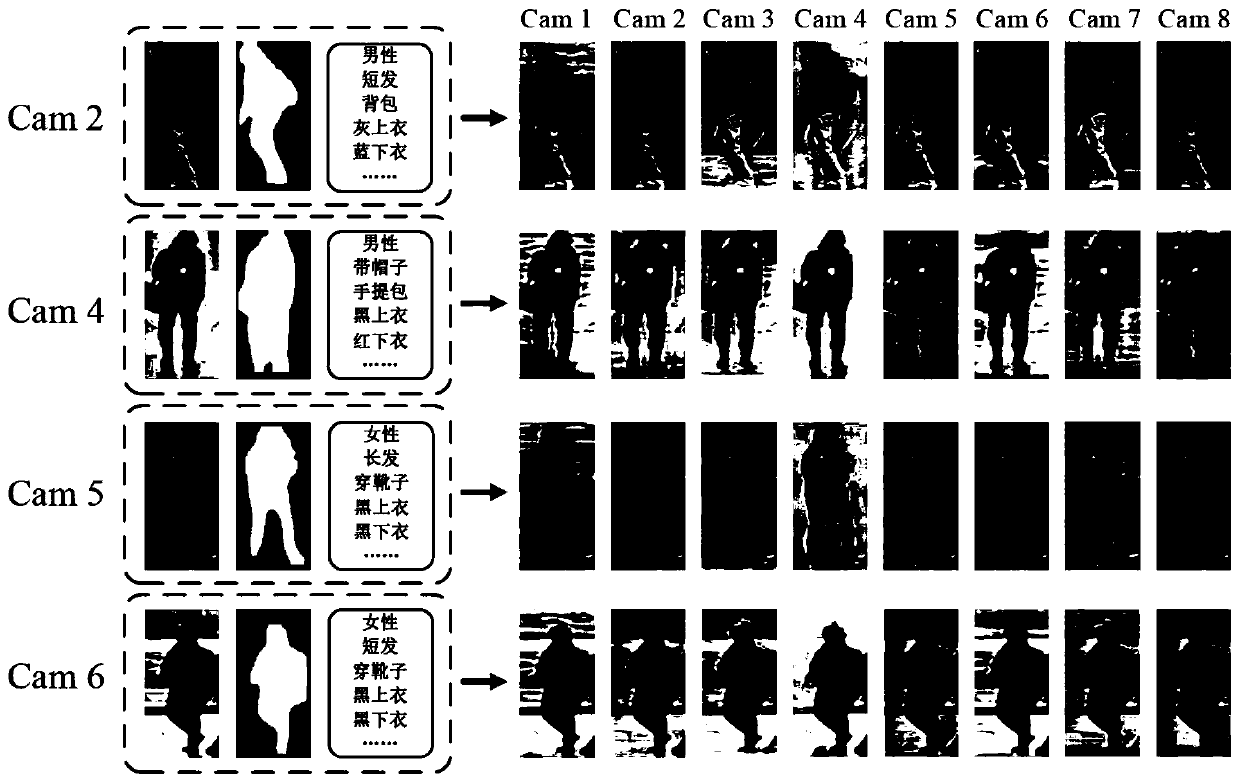Data enhancement pedestrian re-identification method based on generative adversarial network model
A pedestrian re-identification and network model technology, applied in the field of data-enhanced pedestrian re-identification based on the generative confrontation network model, can solve the problems of small data set size, fixed environment changes, and difficulty in conforming to real scenes, etc., to improve the accuracy rate , remove background interference, clear pedestrian boundaries
- Summary
- Abstract
- Description
- Claims
- Application Information
AI Technical Summary
Problems solved by technology
Method used
Image
Examples
Embodiment Construction
[0041] Embodiments of the present invention will be described in further detail below in conjunction with the accompanying drawings.
[0042] A data-augmented pedestrian re-identification method based on a generative adversarial network model, such as figure 1 shown, including the following steps:
[0043] Step S1, using the Mask-RCNN image segmentation algorithm to segment the mask image of the pedestrian in the image.
[0044] In this step, Mask-RCNN is used to segment the pedestrians in the image. The specific segmentation method: first construct a black image with pixel values of all 0s that is consistent with the size of the pedestrian image; then use Mask-RCNN to detect the pixels belonging to pedestrians in the image, The pixel size of the corresponding position is set to 255 to generate a pedestrian image mask image.
[0045] Step S2. Combining mask images and manually annotating pedestrian attributes, train an end-to-end improved star-shaped generative confrontati...
PUM
 Login to View More
Login to View More Abstract
Description
Claims
Application Information
 Login to View More
Login to View More - R&D
- Intellectual Property
- Life Sciences
- Materials
- Tech Scout
- Unparalleled Data Quality
- Higher Quality Content
- 60% Fewer Hallucinations
Browse by: Latest US Patents, China's latest patents, Technical Efficacy Thesaurus, Application Domain, Technology Topic, Popular Technical Reports.
© 2025 PatSnap. All rights reserved.Legal|Privacy policy|Modern Slavery Act Transparency Statement|Sitemap|About US| Contact US: help@patsnap.com



